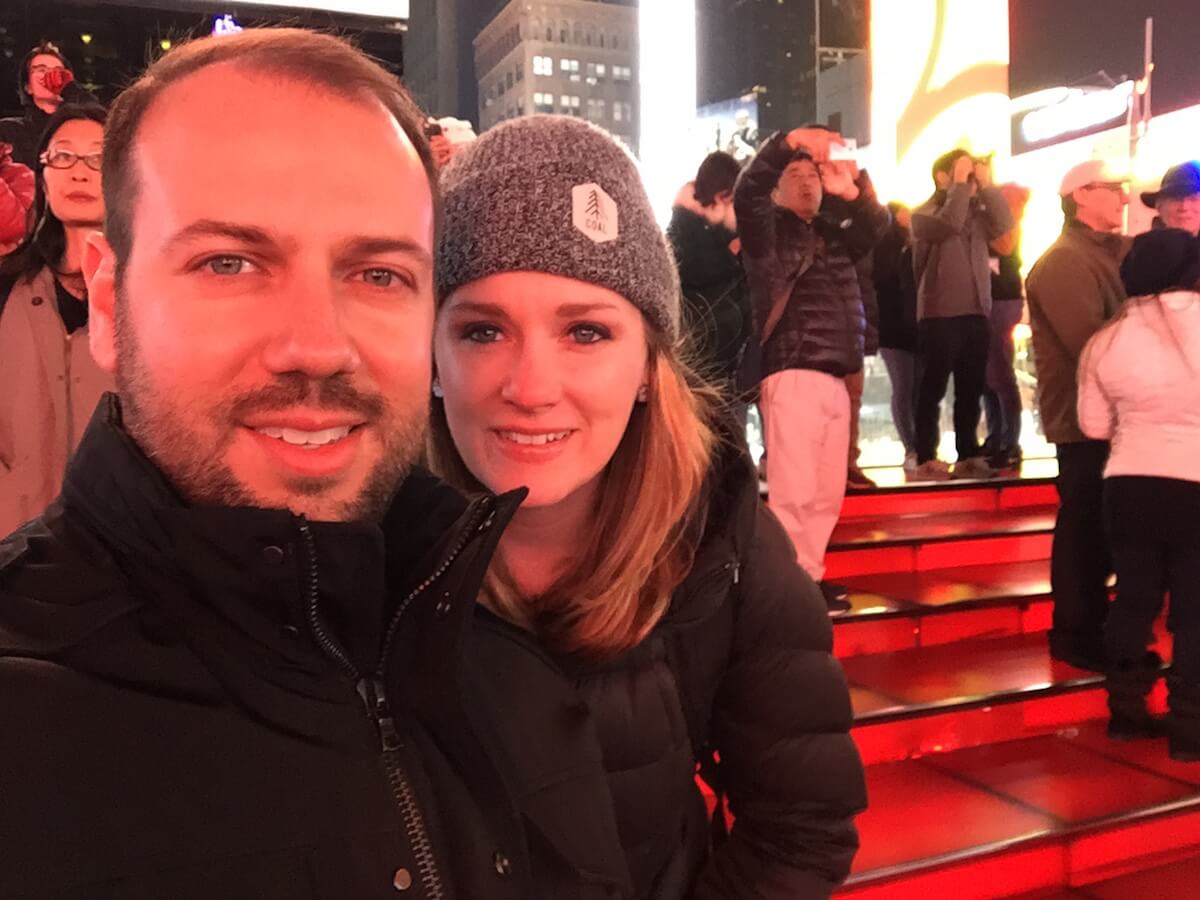In the summer of 2018, Kelli O’Hara was diagnosed with breast cancer—a difficult diagnosis for her to grapple with, since she lost her own grandmother to breast cancer when she was a child. But because of advancements in cancer research, as well as the care she received at the Susan F. Smith Center for Women’s Cancers at Dana-Farber Cancer Institute, O’Hara is cancer-free and looking forward.
“I’ve been so lucky,” says O’Hara, 38. “Not just because they caught it, but because I have my husband, my family, and my friends.”

O’Hara’s desire to start a family of her own is what initially led to the discovery that she had stage I invasive breast cancer, a very treatable and highly curable condition. At that time in her life, she was an accomplished television reporter and college professor, and married to the love of her life, Jason.
The couple was trying to conceive, and when they couldn’t, they started asking questions. This eventually led to O’Hara having a mammogram—the last exam in a series of infertility tests—which showed that she had cancer.
“Our world fell apart that day,” O’Hara explains. “You hear the breast cancer warnings, but the last thing you think about is getting it yourself.”
Under the care of Ann Partridge, MD, MPH, founder and director of the Young and Strong Program for Young Women with Breast Cancer at Dana-Farber, O’Hara underwent surgery for her cancer, as well as egg preservation, and then radiation. Since then, O’Hara has remained cancer-free.
Now that she is in remission, O’Hara faces a difficult decision of whether to put her treatment on hold to try and start a family. To reduce the risk of cancer recurrence, someone in O’Hara’s position would typically undergo hormonal therapy for at least five years following initial treatment. However, the therapy is not recommended for women who are trying to conceive—so O’Hara and her husband are still discussing whether they want to remove that safety net in order to try and have a child of their own.
“These are not easy decisions,” says Partridge. “It becomes a real negotiation. I want to do everything I can to support O’Hara while also giving her the best cancer care.”
It’s a decision that many women have to make, according to Partridge. A study called POSITIVE, which Partridge is leading in North America, is testing whether it’s safe for breast cancer survivors who want to get pregnant to temporarily stop taking hormone-blocking drugs, such as tamoxifen, for hormone-positive breast cancer. This hiatus lasts for up to two years, and then they resume hormone therapy, whether they become pregnant or not. The goal of the study is to discover if taking a break to try and become pregnant is a reasonable alternative to the current standard of care.
For now, O’Hara is just happy to be back at work and traveling again. Recently, the pair went to Aruba, and they’ve already started planning their next adventure.
